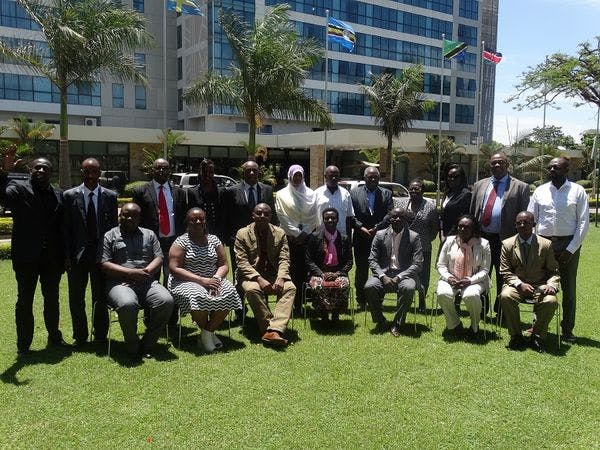The Arusha Declaration: East African Parliamentarians pushing for Harm Reduction services
“We call for the scale-up, strengthening and funding of harm reduction services for people who use drugs across Eastern Africa, as well as the creation of enabling policy environments under which these evidence-based services can operate and achieve their potential impacts.”
This is the call from Members of Parliament (MPs) from several countries from Eastern Africa, through the Arusha declaration that was signed last week at the Regional High Level Policy Dialogue Meeting on HIV and Harm Reduction in Eastern Africa, held in Arusha, Tanzania. MPs from Kenya, Tanzania, Zanzibar, Uganda and Burundi gathered to discuss policies with regards to Harm Reduction services aimed at delivering health and social services to people who use drugs, as well as creating an enabling environment for these services to be delivered. Officials from Seychelles and Ethiopia were also present.
Available HIV prevalence data shows that there is an immense disease burden among people who inject drugs (PWID). Nationwide prevalence of HIV in PWID ranges from 5.8% in Seychelles to 16% in Zanzibar, to 18.3% in Kenya and as high as 44.3% in Mauritius. HIV prevalence among PWID is also uneven within countries and can be very high in some areas.
Thus, as stipulated in the 2016 United Nations Political Declaration on HIV and AIDS, “some countries and regions have made significant progress in expanding health-related risk and harm reduction programmes”, but also noted “the lack of global progress made in reducing transmission of HIV among people who use drugs, particularly those who inject drugs”
The objective of the Arusha meeting was thus to create a space for policy makers and Harm Reduction advocates to meet and discuss. Organised by KANCO (Kenya Aids NGO Consortium), this meeting had technical partners like IDPC and UNODC to provide information on best practices globally, and in the region as well. Discussions that led to the drafting of the Arusha Declaration.
According to Hon. Agostinho Neto, MP from Kenya, “This meeting offered the means to discuss and have a joint voice regarding Harm Reduction for people who use drugs. It also created a network of policy makers opened to the creation of Harm Reduction related legislation”. According to him, discussions about Harm Reduction have been going on for a while with partners talking to themselves. However, this meeting offered the means for technical partners to talk with policy makers, discussing what is possible and not possible in different countries. “The good thing about getting advocates the manner that we did during the meeting, is ensuring that the advocates, i.e. the policy makers themselves, believe in the message. We have seen the level of buy in for the advocates. We now have synergies between the partners and the policy makers”.
MPs have thus committed themselves, through the Arusha declaration, to advocate for relevant policies promoting access to health services towards people who use drugs, for the implementation and scaling up of such services, and for the creation of an enabling environment for these services to be implemented. They also committed to encourage regional studies on drug use, and health.
The organisers of the meeting are now hoping that this declaration will be the basis for the formulation of a regional policy on Harm Reduction in East Africa. Most importantly, this meeting has been, according to Hon. Neto, “a means of converting MPs from awareness creation to the point of knowledge”, thus creating a network of policy makers who believe in Harm Reduction.
Keep up-to-date with drug policy developments by subscribing to the IDPC Monthly Alert.
